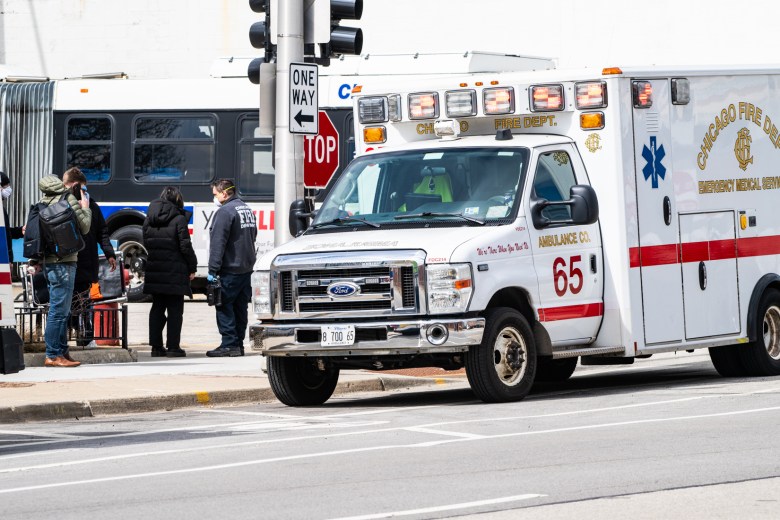ROGERS PARK A mobile crisis team based in Rogers Park is handling most of the mental health emergency calls it receives without police intervention.
Trilogy’s First-Response Alternative Crisis Team was founded in 2022 through a state pilot program aimed at providing alternatives to calling 911 for people with mental health issues. The group, also known as FACT, was recently approved for state funding for the upcoming fiscal year, and providers hope to continue expanding the program, leaders said.
“We hear all the time about how police officers need more assistance to respond to these calls,” said Jenique Dean, FACT’s clinical director. We just want to be available so police resources can be used for other issues happening in the community. We just want to go out and do what we can.
While FACT calls have increased by 13 per cent since 2022, the group is still working to inform people and police officers who can call 988 to get support from a mental health care provider in a crisis, Dean said. This number is a nationwide suicide hotline and an alternative to calling 911.
People living on the Far North Side can call FACT directly at 800-322-8400 to request help during a mental health emergency or to access other mental health resources, such as therapy and case management, she said Dean. FACTs Crisis Hotline answers calls in Rogers Park, Edgewater, Uptown and West Ridge, as well as suburban Evanston and Skokie.
We were doing as much outreach and community involvement as we could, but many people in the community say they still don’t know these programs are available, Dean said.
Trilogy is working with local government officials to streamline 911 calls that police decide to transfer to mental health providers, Dean said.
Sometimes we lose calls in transition because right now they have to put the caller on hold and call us and then merge us all, Dean said. Instead, they are working on a way to transfer those calls to us immediately, which will increase our call volume and allow us to reach people much faster.
The 24-hour mobile crisis team resolves 94 percent of calls without police intervention. In 2023, FACT received 4,461 calls and completed 1,171 crisis mobilizations, according to a press release.
FACT responders do not necessarily travel to meet each caller in person. Some people call to ask about Trilogys mental health services. Others just want to talk to someone on the phone during a difficult situation.
The line can be used for all kinds of things, Dean said. We have people who call and honestly don’t want anyone to come out to their house, they just want to talk. We were also able to provide this level of support.
Most calls can be handled independently by FACT handlers because they’re trained to interact with people while they’re having mental health crises and aren’t afraid to ask questions to find out what’s going on, Dean said.
Initial interventions are combined with a robust follow-up program that connects callers with social workers who help them access mental health resources. Social workers help people get to their appointments, talk through people’s concerns about seeking support and generally guide people through the recovery process, Dean said.
For 50 years, Trilogy has provided comprehensive care to people with mental illness, including those who are also struggling with substance use or homelessness. The Rogers Park-based organization offers a variety of programs, including therapy and outpatient services, employment support, housing resources, assistance services and more.
It generally works because of the continuum of care we give clients afterward, Dean said.
Although the state will fund the FACT program for at least the next year, Trilogy raises money so the team can address issues reported by callers, Dean said. Many callers lack housing, food and other resources, so Trilogy provides hotel stays, meals and other supplies for people in need.
Dean said we got a few calls from someone who wasn’t staying and was going into crisis because they kept losing their IDs. So we bought him a wallet to solve the problem. This was not covered by our state funding, but we also raise funds to provide these types of resources to our clients.
To learn more about FACT and support the teams’ work, visit the Trilogys website.
Listen to the Block Club Chicago podcast:
#North #Side #Mental #Health #Crisis #Team #Helped #Callers #Police
Image Source : blockclubchicago.org
